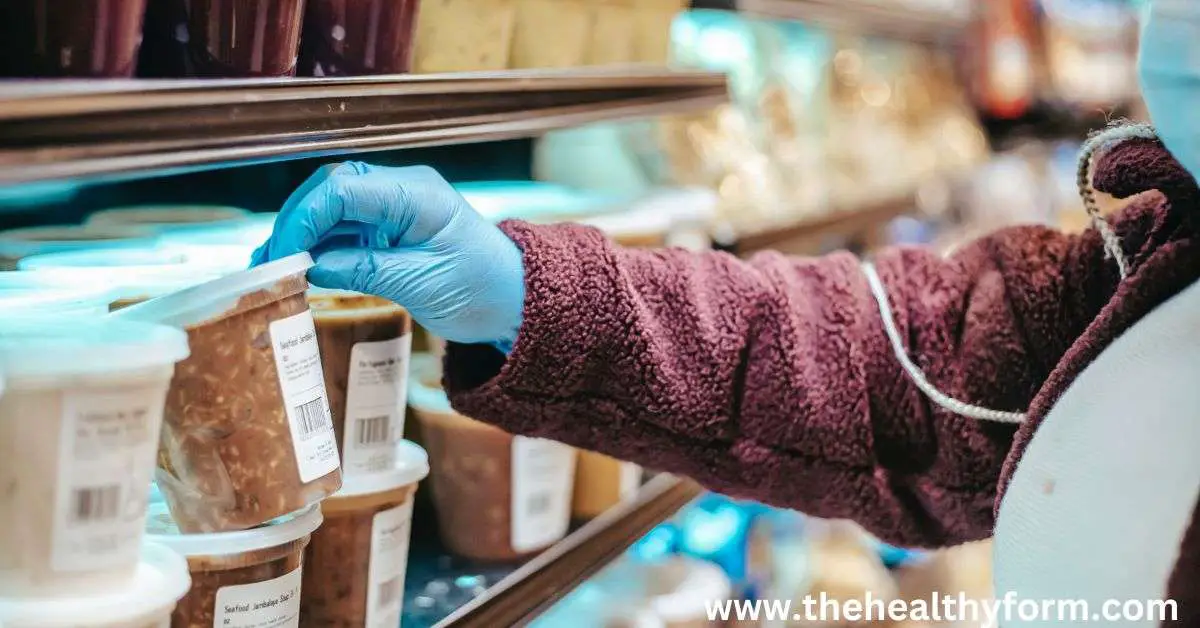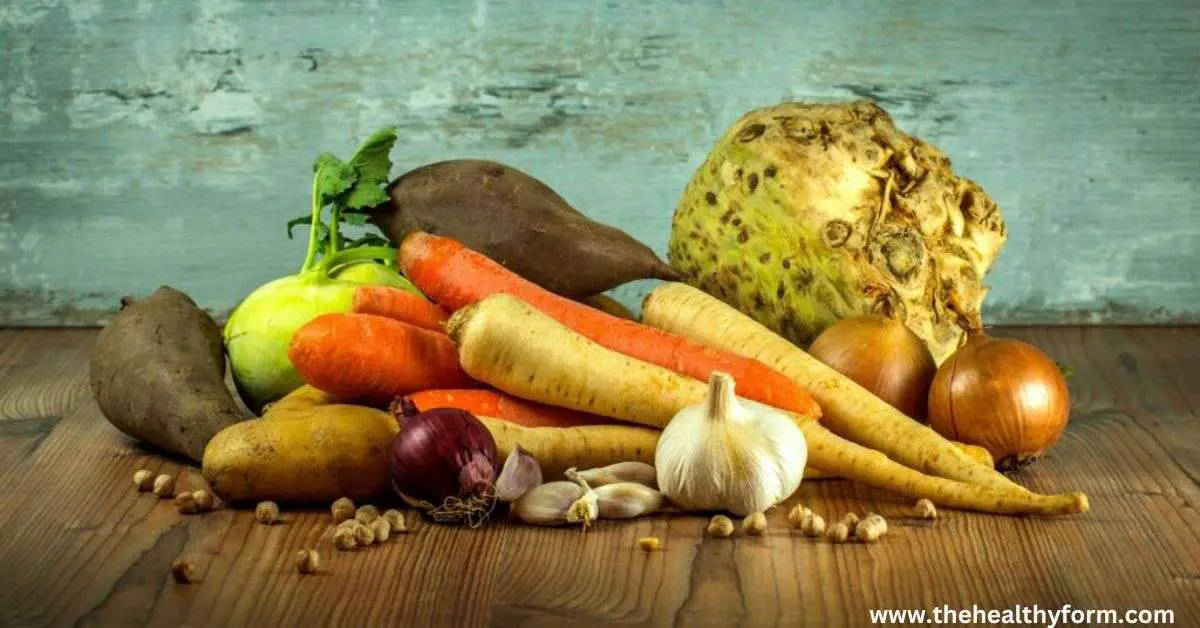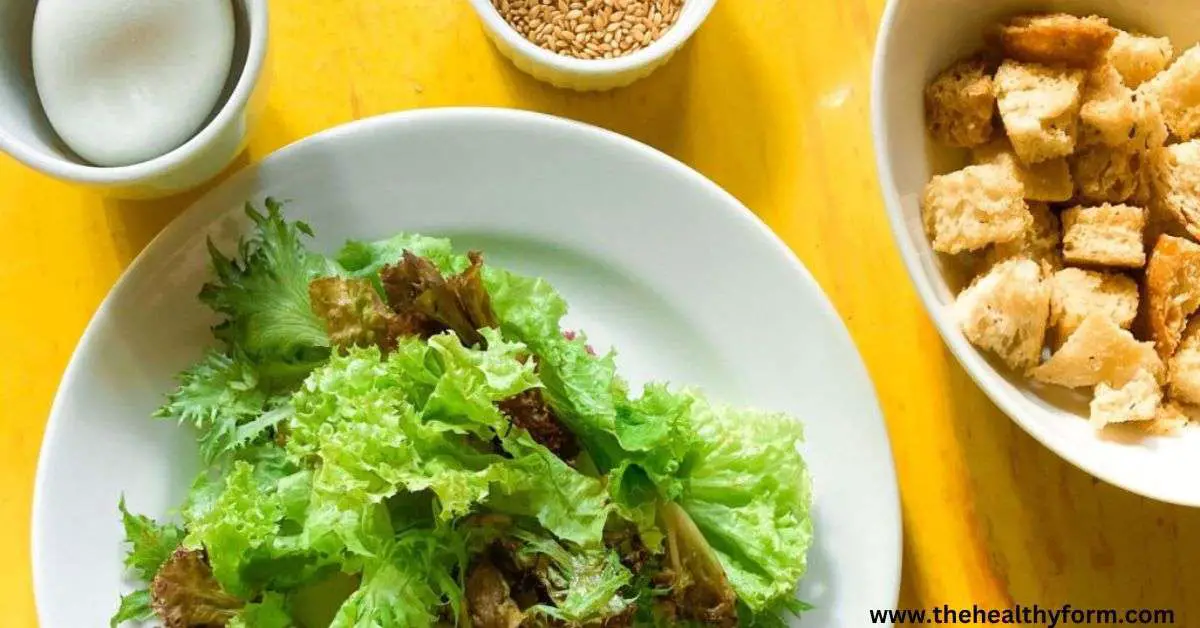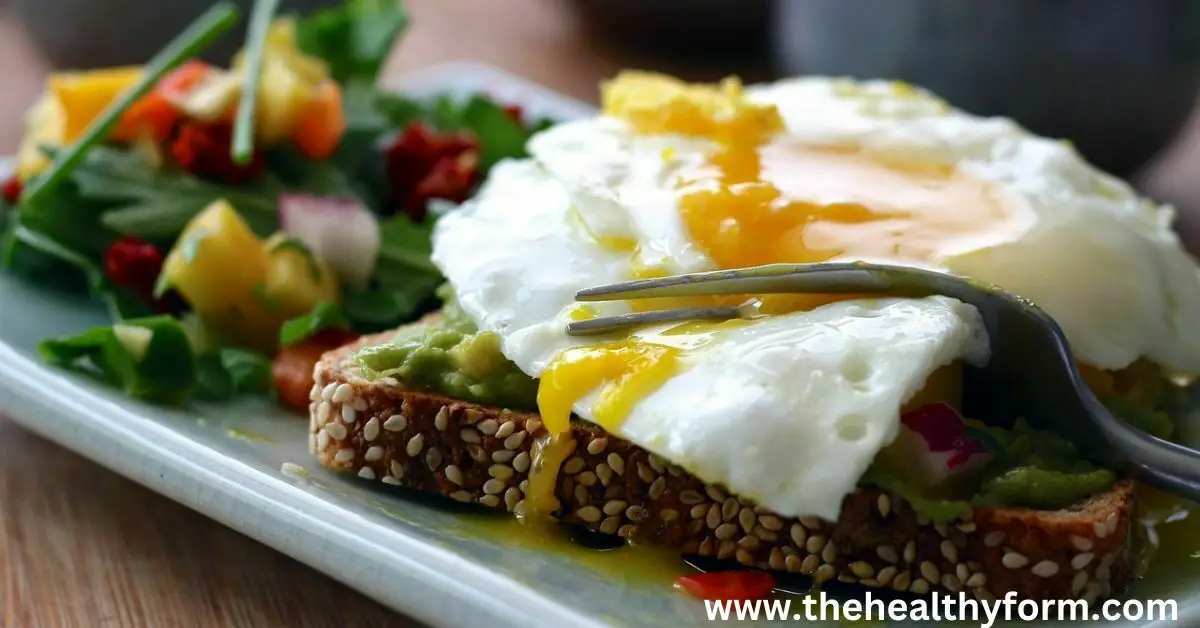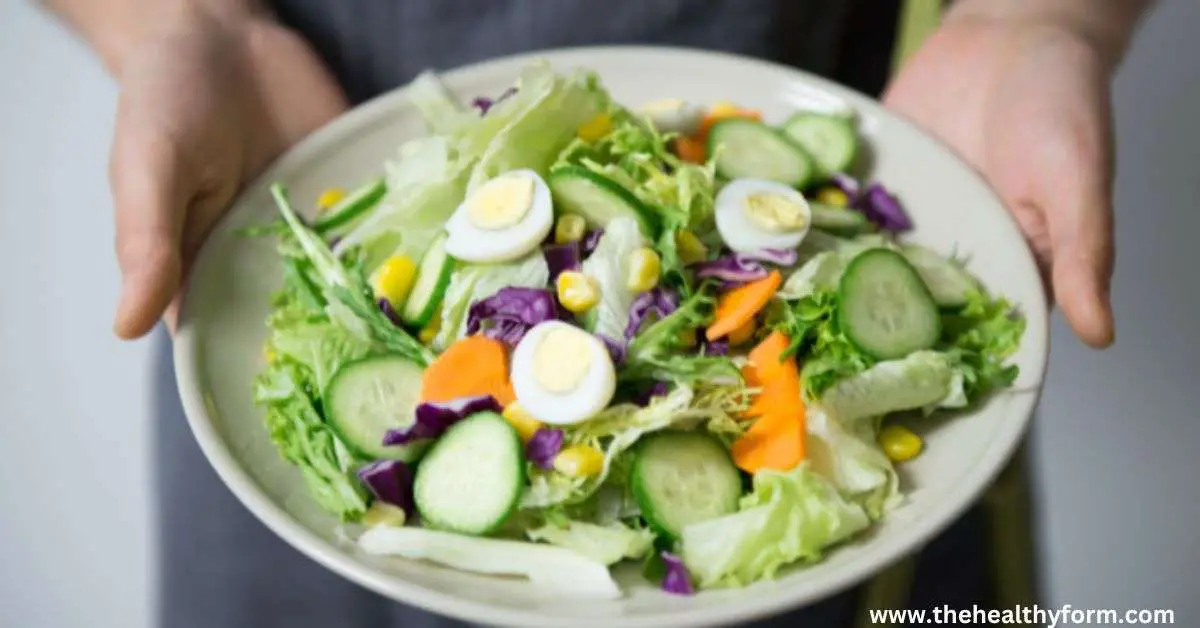Zinc Rich Foods For Vegetarians: A Vegetarian’s Guide
Looking for zinc rich foods for vegetarians? Check out our comprehensive guide to the best plant-based sources of this essential mineral. From nuts and seeds to legumes and whole grains, we’ve got all the information you need to maintain a healthy, balanced diet. Start incorporating these zinc-rich foods into your meals today!
As a vegetarian, you know that many of your essential nutrients come from plants. But did you know you can get zinc through your diet, too? Zinc is an essential mineral that helps support your body’s natural defence systems and immune system. Ensuring you consume zinc foods vegan regularly can help you meet your nutritional needs on a plant-based diet. So, explore the world of zinc foods vegan and enhance your well-being through these plant-powered sources of this crucial nutrient.
And because vegetarians don’t eat animal products, it’s important to understand which foods have high levels of zinc and how to incorporate them into a healthy diet. If you’re ready to learn about zinc rich foods for vegetarians, you’ve come to the right place. In this article, I’ll share some of the best sources of zinc for vegetarians, along with tips on how to get the most out of these nutritious ingredients. So let’s get started!
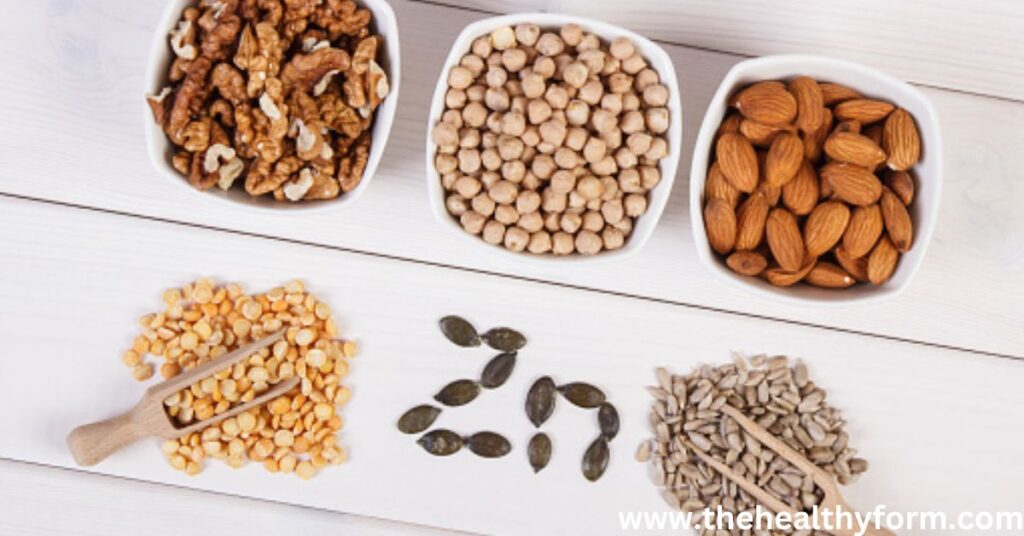
What Is Zinc and Why Do We Need It?
If you’re a vegetarian, zinc is an important mineral you must know. While it’s true that it’s present in many foods, getting an adequate amount of zinc can be a challenge if you don’t consume animal products. So, what is zinc, and why is it so important in the first place?
Zinc is an essential mineral found in many plant and animal foods. It helps our bodies with important functions such as cell growth, reproduction, and immune system support. It also helps with injury healing, taste perception, and protein synthesis. Plus, it plays key roles in different hormones that support the cardiovascular, skeletal, and nervous systems. These benefits make it an essential part of any diet—especially for vegetarians.
The recommended daily intake for zinc is 8-11 mg., depending on age and gender. Getting this solely from food sources will require some thoughtfulness and planning if you don’t consume animal products. But don’t worry; in the next section, we’ll look at some easy-to-find sources of zinc to help ensure you meet your needs!
Zinc Rich Foods for Vegetarians
You may be worried about getting enough zinc in your diet if you are a vegetarian. Zinc is an essential mineral that helps your immune system stay healthy and plays a role in protein synthesis—but if you don’t consume animal foods, it can be tough to meet the dietary requirements.
These foods high in zinc vegan options can help you maintain a well-balanced diet while ensuring you get the required zinc intake. So, make sure to incorporate foods high in zinc vegan into your daily meals to promote your well-being and meet your dietary goals. Here are a few to add to your grocery list:
- Cashews and other nuts: A one-ounce serving provides over 7 milligrams (mg) of zinc—roughly half the recommended daily allowance for adults.
- Legumes: Beans and lentils provide zinc and plant-based protein, making them an excellent choice for vegetarians. They provide around 2 mg per cup cooked.
- Quinoa: An especially versatile grain, quinoa provides around 1.5 mg per cup cooked—plus, it’s a great source of copper, phosphorus, magnesium, and other essential minerals that help keep your body functioning properly.
- Soy products: Tofu and tempeh are two plant proteins that contain zinc—about 2 mg per 4 ounces of tofu or 2.5 ounces of tempeh.
- Whole grains: Brown rice, oats, and whole wheat bread each provide around 1 mg of zinc per serving.
The bottom line is that plenty of delicious options are out there to ensure you get adequate amounts of this vital mineral as part of your plant-based diet!
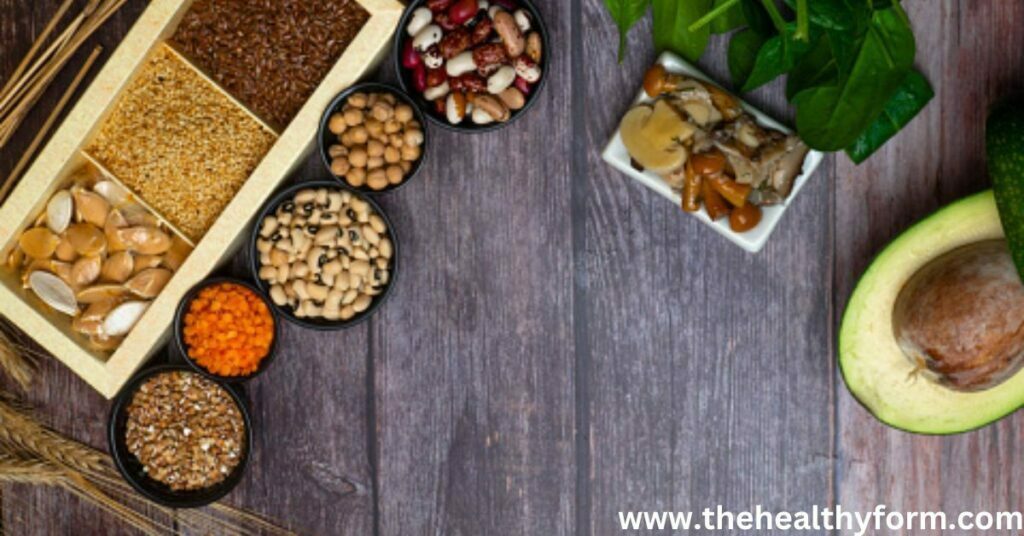
How Much Zinc Is Recommended for Vegetarians?
Now that you understand why zinc is important for vegetarians and what types of foods are good sources, it’s time to talk about how much zinc your body needs. According to the National Institutes of Health (NIH), adults should aim for 8-11 mg daily, depending on their gender and age.
Women
Women need slightly less zinc than men—8 mg of zinc daily. The NIH recommends 11 mg per day and 12 mg while breastfeeding for pregnant women.
Men
Men will want to up those numbers a bit. The NIH recommends 11 mg of zinc per day for adult men.
It’s also important to note that vegetarians are more likely to be deficient in zinc than their non-vegetarian friends. So, if you’re eating a vegetarian or vegan diet, paying extra attention is a good idea to ensure you get enough zinc.
Nutrients That Aid in Zinc Absorption
It’s important to understand zinc-rich foods if you’re fully a vegetarian. Certain nutrients help your body absorb zinc as it passes through your digestive system.
Vitamin C
Vitamin C is one of the best vitamins for helping your body absorb zinc from food sources—it helps the stomach absorb more zinc from the food you eat. So make sure to get plenty of Vitamin C in your diet. Foods like oranges, kiwi, strawberries, and bell peppers are great options for packing in the Vitamin C.
Iron
Iron is essential for absorbing zinc, so you’ll want to ensure you’re getting enough! Great vegetarian sources of iron include lentils, tofu, kidney beans, and spinach. These foods will help you get enough iron and contain many other important vitamins and minerals.
So, if you’re looking to get enough zinc in your diet as a vegetarian, try to include at least one food in each meal that contains vitamins and minerals that help with absorption — like vitamin C and iron. With those nutrients working together with zinc rich foods, you’re on your way to optimal health!
Symptoms of Zinc Deficiency
If you think you may have a zinc deficiency, start paying attention to any unusual signs or symptoms. These may include:
- Weak immune system and frequent colds or infections
- Poor wound healing, including slow recovery times
- Loss of taste
- Hair loss
- Diarrhea and other digestive issues like gas and bloating
- Poor appetite
- Skin conditions like eczema or acne
It’s important to note that other conditions may also cause these symptoms, so it’s always a good idea to consult your healthcare provider if you notice any of them. They can provide an accurate diagnosis and work with you to determine the right course for treating or managing your condition.
Easy Recipes to Add More Zinc to Your Diet
Looking for easy recipes to add more zinc to your diet? We’ve got you covered. Let’s start with breakfast: try a bowl of oatmeal with almonds, blueberries, and a little honey, all containing zinc.
For lunch, sprinkle pumpkin seeds into any veggie-filled salad and enjoy! Another great main course option is a roasted veggie quinoa bowl with black beans, nuts, and greens – again, these ingredients contain zinc in varying amounts.
Try out savory roasted potatoes paired with lentils and avocado for dinner. Each of these foods contains zinc in some form that your body can benefit from.
If you’re looking for something sweet to beat the craving bug, you can make yourself some delicious dark chocolate bark sprinkled with pumpkin seeds – remember that dark chocolate contains trace amounts of zinc as well! Plus, it’s an indulgent treat that won’t sabotage all your hard work.
Making delicious Vegetarian-friendly meals packed with zinc is easier than you think. Start cooking these simple yet delicious dishes now and enjoy the many health benefits of adding more zinc-rich foods to your diet!
Zinc Rich Foods for Vegetarians List
Whether you’re vegan, a vegetarian, or both, you know that getting enough zinc can be challenging. Fortunately, you can meet your daily zinc needs with some of these delicious and healthy vegetarian-friendly foods:
Legumes
Legumes are packed with protein and other nutrients, as well as zinc. Some great examples include navy beans, kidney beans, black beans, and lentils. They all contain between four to six milligrams of zinc per cup (cooked).
Nuts and Seeds
Nuts and seeds are an excellent source of zinc for vegetarians. For example, just one ounce of roasted pumpkin seeds contains two milligrams of zinc. Other great sources include almonds, cashews, sunflower seeds, and walnuts.
Whole Grains
Whole grains are an excellent way for vegetarians to get their daily zinc. A cup of cooked brown rice contains about 1.4 milligrams of zinc. Other whole grains to consider include bulgur wheat, quinoa, and barley.
Tofu
Tofu is not only a great source of protein but also packed with zinc! One cup contains around three milligrams of the mineral—talk about bonus points! It’s also low in calories and fat, so it’s a great way to increase your intake without worrying about your daily macro goals.
FAQ About Zinc Rich Foods For Vegetarians
Some of the most common questions people have about zinc-rich foods for vegetarians are:
What are the best sources of zinc for vegetarians?
The best sources of zinc for vegetarians include tempeh, legumes, nuts, and seeds, such as pumpkin and sesame seeds, ground flaxseeds, almonds, cashews, pine nuts, quinoa, and fortified cereals. Tofu is also a great source of zinc. You can also get some zinc from orange juice and cooked spinach.
How much zinc should I be getting each day?
Adults’ recommended daily zinc intake is 11 milligrams (mg) for adult men and 8 mg for adult women. However, pregnant women should get 11mg daily, and lactating women should consume 12 mg daily. So, it’s important to ensure enough zinc daily for optimal health.
Are there any potential risks that come with eating too much zinc?
Yes—consuming too much zinc can cause gastrointestinal issues such as nausea and vomiting and other adverse reactions like headaches or dizziness. It’s best to speak to your doctor before consuming excessive amounts of any nutrient to ensure you don’t suffer any negative side effects!
Conclusion
All in all, zinc is an important nutrient that should be consumed correctly. It’s essential for optimal health and can play a key role in helping vegetarians stay healthy and vigorous. Some of the best vegetarian sources of zinc include legumes, nuts, seeds, whole grains, and fortified cereals. By adding these foods to a healthy vegetarian diet, you can easily get an adequate zinc intake. Furthermore, if you’re not getting enough zinc from your diet, you can always supplement with a zinc-fortified multivitamin.

